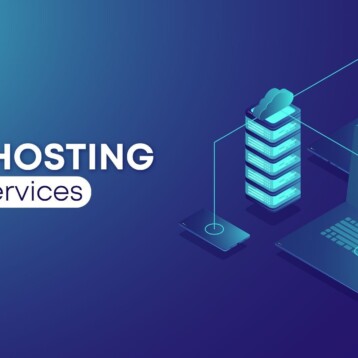
According to a survey conducted by LogicMonitor, enterprises will run their workloads on public and private cloud-based platforms, as well as on hybrid cloud platforms which are still under development. The most important insights from this survey show that more than 40% of enterprises will move their workloads on public cloud platforms such as Amazon AWS, IBM Cloud or Microsoft Azure by the year 2020. 20% of enterprises will choose private cloud platforms instead, which seem to grow rapidly in popularity. Another 20% will opt for hybrid cloud platforms. A total of approximately 80% of enterprises will turn their attention to using cloud technology.
The sole reason why the rest of the enterprises don’t adopt a cloud computing strategy is cybersecurity. Cloud developers and managed cloud services providers such as Techolution Managed Cloud Services help companies currently work on strengthening their platforms. Making such upgrades take time, so 2020 seems to be the best year to adopt cloud computing strategies. After 2020, a change in preferences in terms of deployment models will be noticed. If today enterprises prefer public cloud services, as private cloud computing develops it will become the top choice of most companies.
How enterprises are digitally transformed?

Cloud strategy adoption is a more common practice today because of the advancements happening in the IT sector. More than 60% of enterprises try to include technology in their day-to-day processes and activities, even though challenges still occur. The options were more limited a while ago, but the digital transformation is influenced by a series of factors such as the rise of Artificial Intelligence and Machine Learning, the mass adoption of IoT and more. Cloud computing adoption comes with a series of benefits that can save enterprises a lot of resources, including infrastructure costs, not to mention that it helps with streamlining their IT processes.
To understand the business movement in terms of digital transformation, it is paramount to mention the current and predicted value of the public cloud market. Based on the research provided by Statista, the market is continuously growing. The research started in 2008 when the public cloud computing market was evaluated at almost $6 billion. In 2018, the value reached no less than $140 billion and it is expected to increase to $160 billion in one year from now on. In 2019, enterprises witnessed a boom in terms of digital transformation, as the adoption of cloud-based tech went from 40% of all organizations to 65% in just 18 months. This year is no exception and the amount of global spending allocated to cloud tech has increased by almost t 20%.
What challenges could enterprises encounter when using cloud tech?

The biggest challenges that enterprises should expect to encounter when adopting cloud tech for the first time are quite numerous at the moment. These are supposed to be solved by the year 2020, at least partially if not completely. As mentioned before, security is an issue that most cloud service providers try to fix. The next challenge is training employees to use cloud-based technology, which requires time and money.
Privacy is another concern, especially for companies that work with sensitive information. Relying on the cloud only imposes too many risks. This is why enterprises working in the healthcare industry, insurance or similar ones choose hybrid cloud computing today. Others consider cost a challenge, as implementing a cloud computing strategy requires a considerable amount of financial resources. Unplanned outages are another reason behind the reticence that enterprise owners expose when it comes to adopting cloud computing.
When should we expect 95% of workloads running in the cloud?
The current statistics say that more than 80% of businesses will adopt cloud technology by 2020, but when will the percentage reach a 95% mark? It is difficult to say at the moment because some enterprises trust on-premise workloads only. Until cloud computing won’t become entirely safe, the percentage won’t go up to 95%. Yet Cisco published the Global Cloud Index and the predictions stated that 94% of enterprises will move their workloads to the cloud environment by 2021, which means that the numbers will go up considerably in just one year. If the predictions are correct and the explosion in SaaS workloads is going to take place, the flexibility and benefits of cloud technology will be present in most organizations out there.
Moreover, the rapid development of cloud application development services generates a large number of options from which enterprises can choose, according to their specific needs and requirements. By 2021, it is expected that the amount of traffic generated globally would reach 280 000 petabytes per month. The huge value indicates the need for a more elastic option to store and manage data. The growth of IoT application also imposes the use of a scalable solution, which can only be provided by cloud computing.
Industry use of Cloud Computing
According to Forbes, cloud computing adoption is the most evident in industries such as business, engineering, and government. McCafee published a report that covers the survey results of over 1,000 IT companies from different parts of the world and industries to determine what cloud usage patterns they apply, what security concerns they have and whether they need guidance on cloud computing strategies or not. 19% of the enterprise owners stated that they completely distrust the public cloud market, while 37% of them said that they slightly trust it. Only 13% of the survey participants stated that they completely trust the public cloud market. More people seemed to have a better opinion about the private cloud market, as 23% of the participants mentioned they completely trust it. Here are further statistics by industry:
- Education. 26% private, 54% hybrid, 19% public cloud market
- Finance. 26% private, 56% hybrid, 18% public cloud market
- Insurance. 18% private, 73% hybrid, 9% public cloud market
- Telecommunications. 27% private, 50% hybrid, 23% public cloud market










